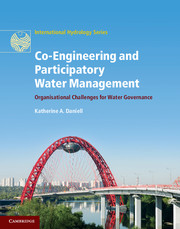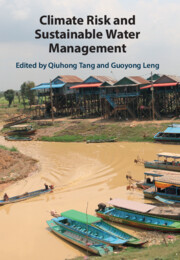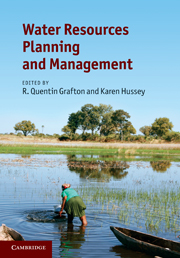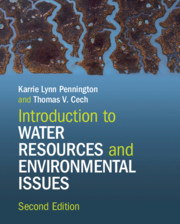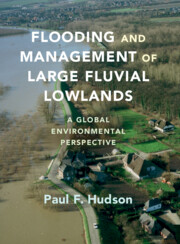Co-Engineering and Participatory Water Management
Effective participatory water management requires effective co-engineering – the collective process whereby organisational decisions are made on how to bring stakeholders together. This trans-disciplinary book highlights the challenges involved in the collective initiation, design, implementation and evaluation of water planning and management processes. It demonstrates how successful management requires the effective handling of two participatory processes: the stakeholder water management process and the co-engineering process required to organise this. The book provides practical methods for supporting improved participatory processes, including the application of theory and models to aid decision-making. International case studies of these applications from Australia, Europe and all over the world, including Africa, are used to examine negotiations and leadership approaches, and their effects on the participatory stakeholder processes. This international review of participatory water governance forms an important resource for academic researchers in hydrology, environmental management and water policy, and also practitioners and policy-makers working in water management.
- Real-world case-studies and comparative analyses provide insight into the impacts of co-engineering on participatory water management
- Supplementary appendices on key themes and cases enable students new to water management and practitioners wanting reference material to quickly deepen their understanding
- Proposes research- and evaluation-based approaches for effective participatory interventions and provides lessons for supporting positive change
Product details
May 2012Adobe eBook Reader
9781139415569
0 pages
0kg
85 b/w illus. 53 tables
This ISBN is for an eBook version which is distributed on our behalf by a third party.
Table of Contents
- Part I. Framing the Context:
- 1. Introduction
- 2. Water planning and management for the 21st century
- 3. Decision-aiding for water planning and management
- 4. Co-engineering participatory modelling processes
- 5. Intervention research and participatory process evaluation
- Part II. Learning through Intervention:
- 6. Introduction to the intervention cases and lessons from the pilot trial
- 7. Creation of the Lower Hawkesbury Estuary Management Plan, Australia
- 8. Flood and drought risk management in the Upper Iskar Basin, Bulgaria
- 9. Intervention case analysis, extension and discussion
- 10. Conclusions and perspectives
- Part III. Additional Information: Appendices
- References
- Index.

